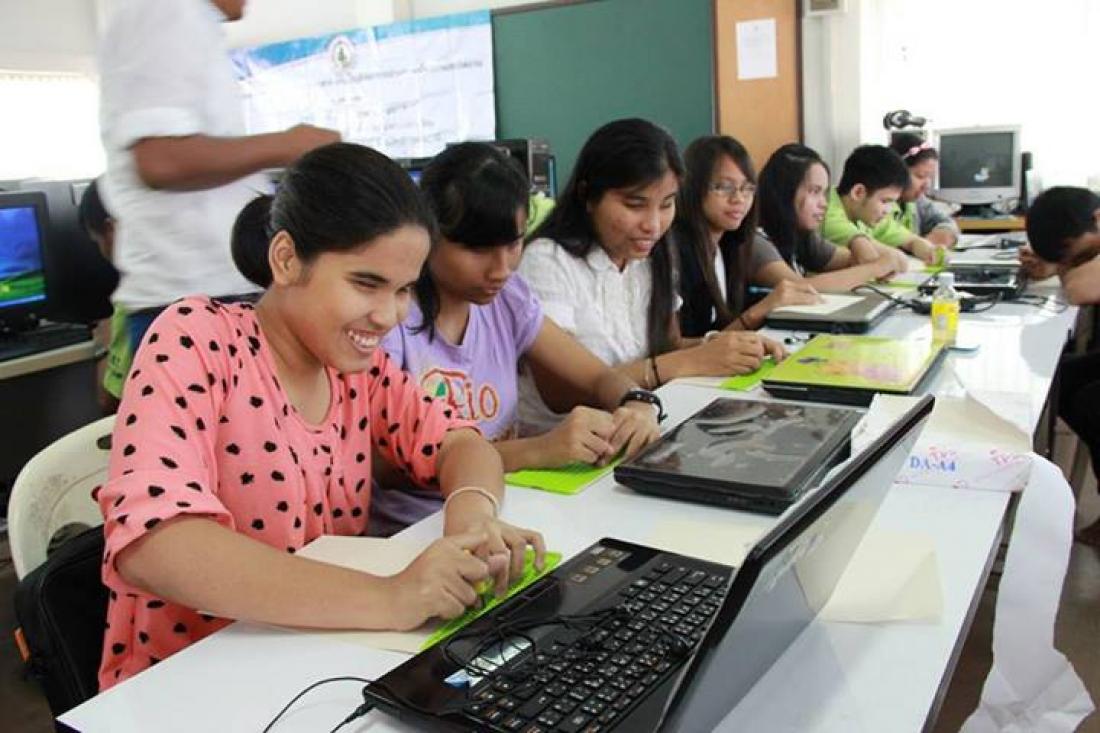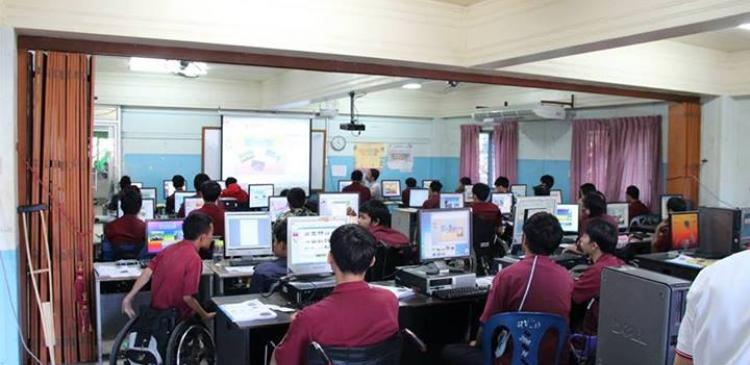Information Communication Technology (ICT) plays a key role in empowering people with disabilities to be agents of development efforts and active players in social and economic activities. However, in Thailand, as in many other countries of the world, people with disabilities are still marginalized and discriminated. They are prevented from fully accessing healthcare services, benefiting from educational programmes, being involved in lifelong learning initiatives, and becoming financially independent and competitive in the labour market.
In recognizing the major challenges and barriers to promoting disability-inclusive economic and social development, CCDKM organized and delivered this year a series of trainings on ICT for Business and Knowledge Management in six provinces in Thailand (Nakhon Si Thammarat, Nakhon Sawan, Pathum Thani, Roi Et, Surat Thani and Lampang). 163 women, 41 physically disabled people, 111 visually impaired and 60 hearing impaired people, have been trained on knowledge management skills, including the use of Microsoft Office, Power Point presentations, Microsoft Excel and basic accounting.
Participants were enthusiastic and greatly benefited from the trainings. “I work at a local agricultural cooperative and my responsibility is to write management and financial reports. The accounting and administration skills I gained during this training will enable me to work faster and manage my work better”, said Nok from Pathum Thani.
Lack of access to ICTs and adequate tools are also major barriers to disability-inclusive societies. For many trainees it was their first time using a computer. “Usually I have very limited access to computers; after this training I understand that learning new digital literacy skills may open up opportunities for my future”, said Kai, a student from Roi Et School for the Blind.
After the series of trainings, participants were eager to learn more. They expressed the need to be trained on Web Content Accessibility Guidelines (WCAG 2.0) created to make web content more accessible to people with disabilities and all online users.
Sara Gabai
CCDKM, APTN




